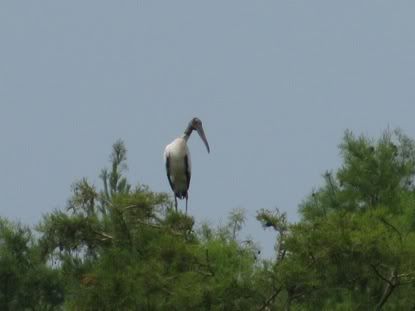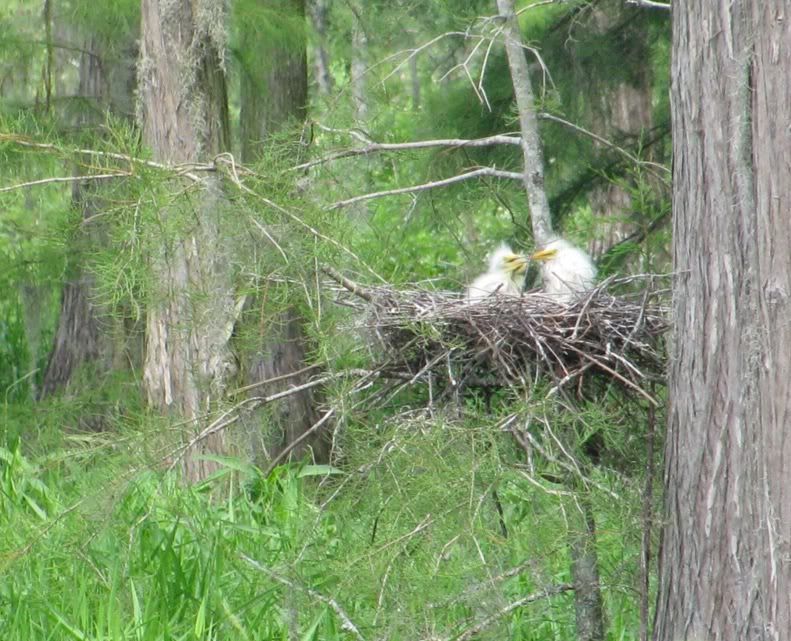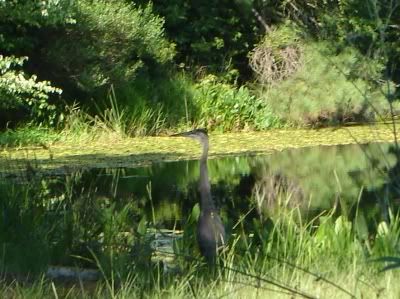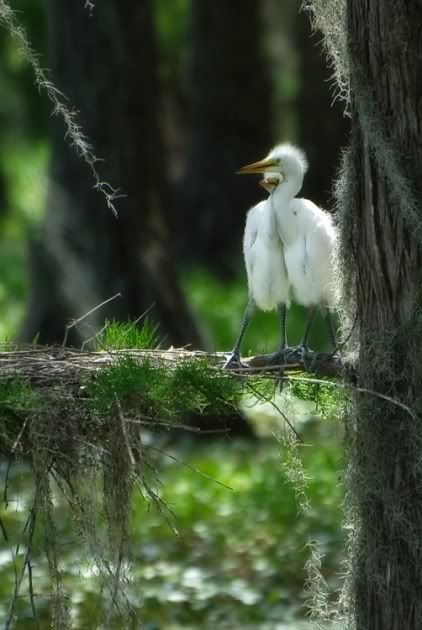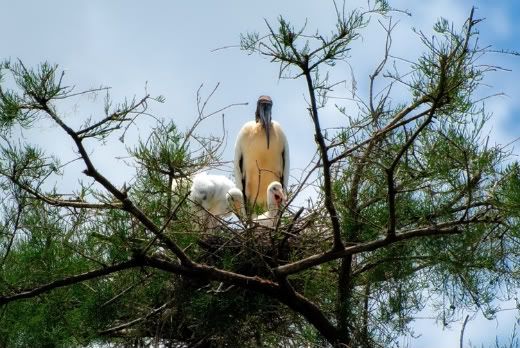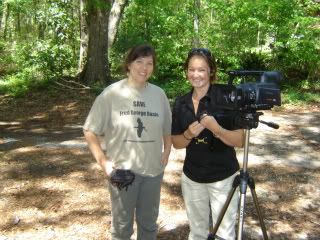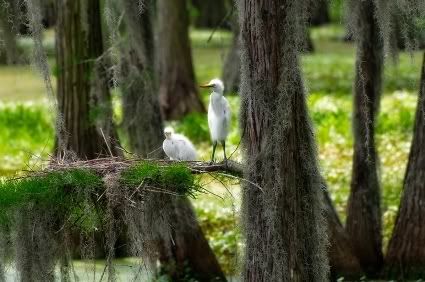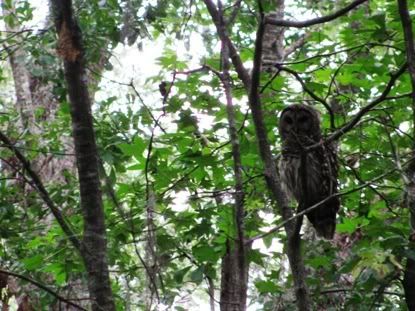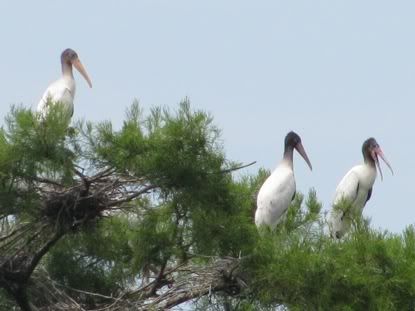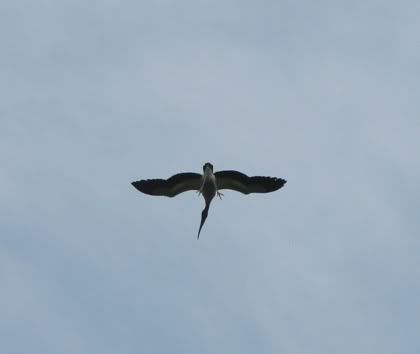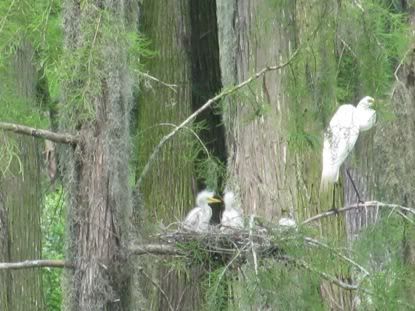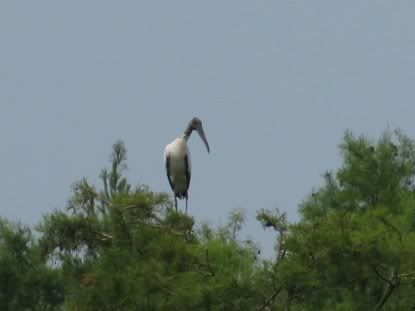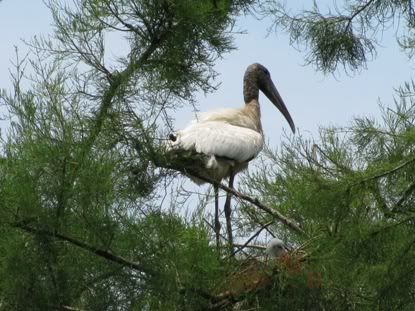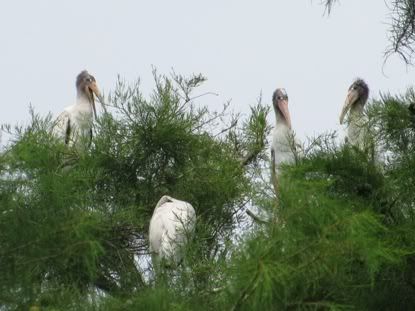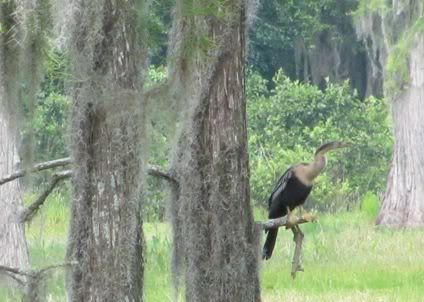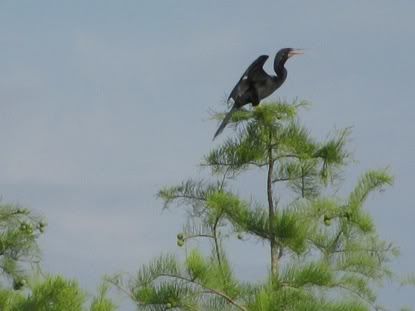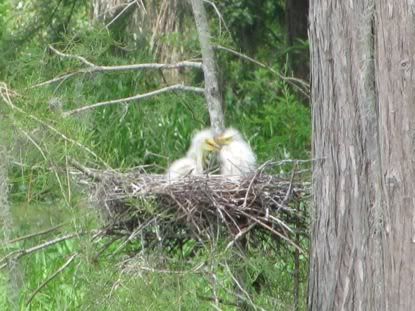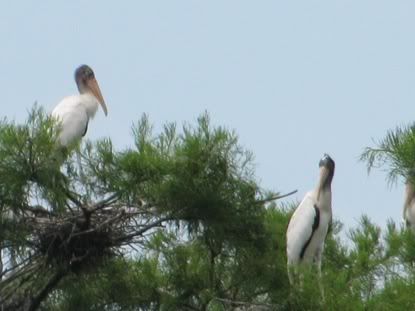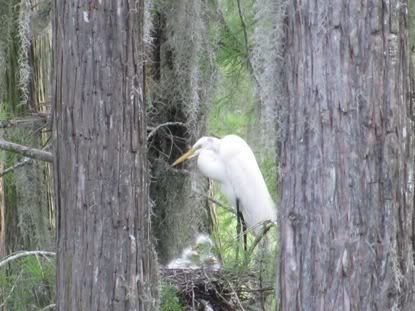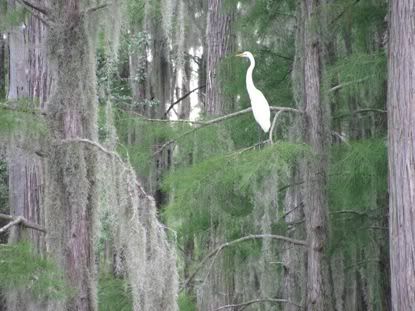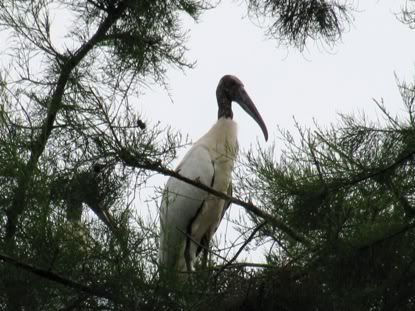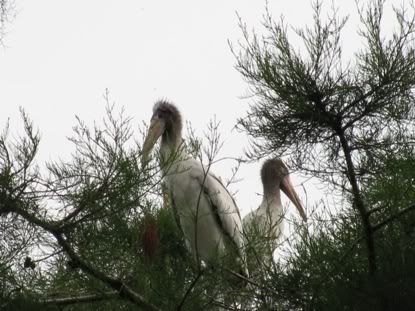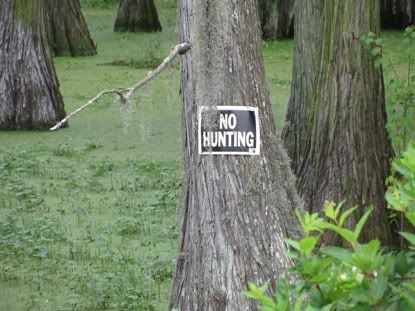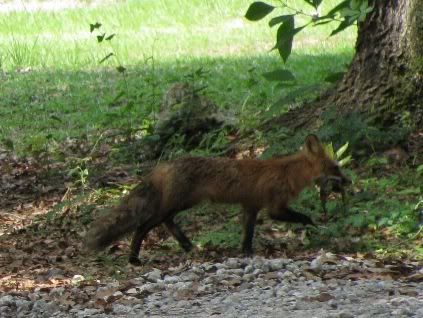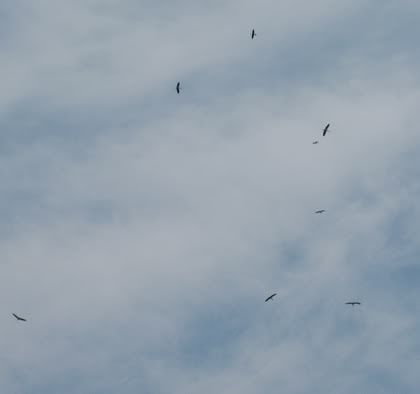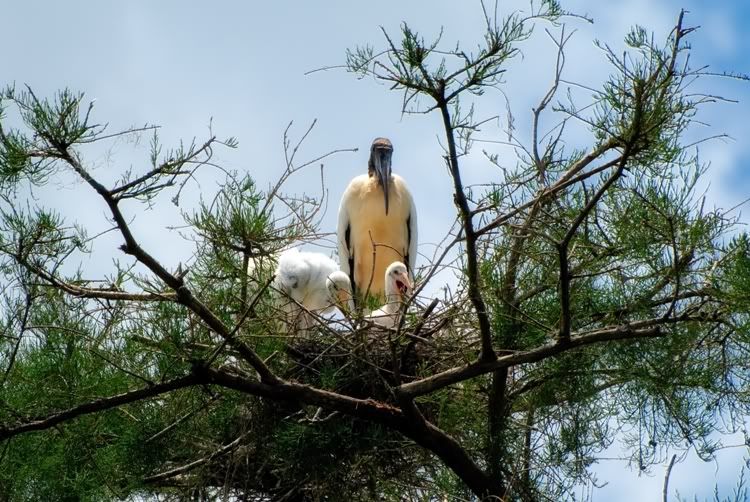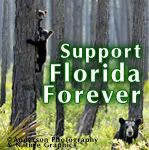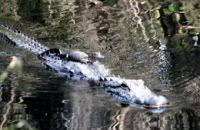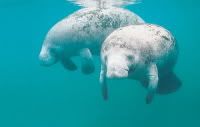
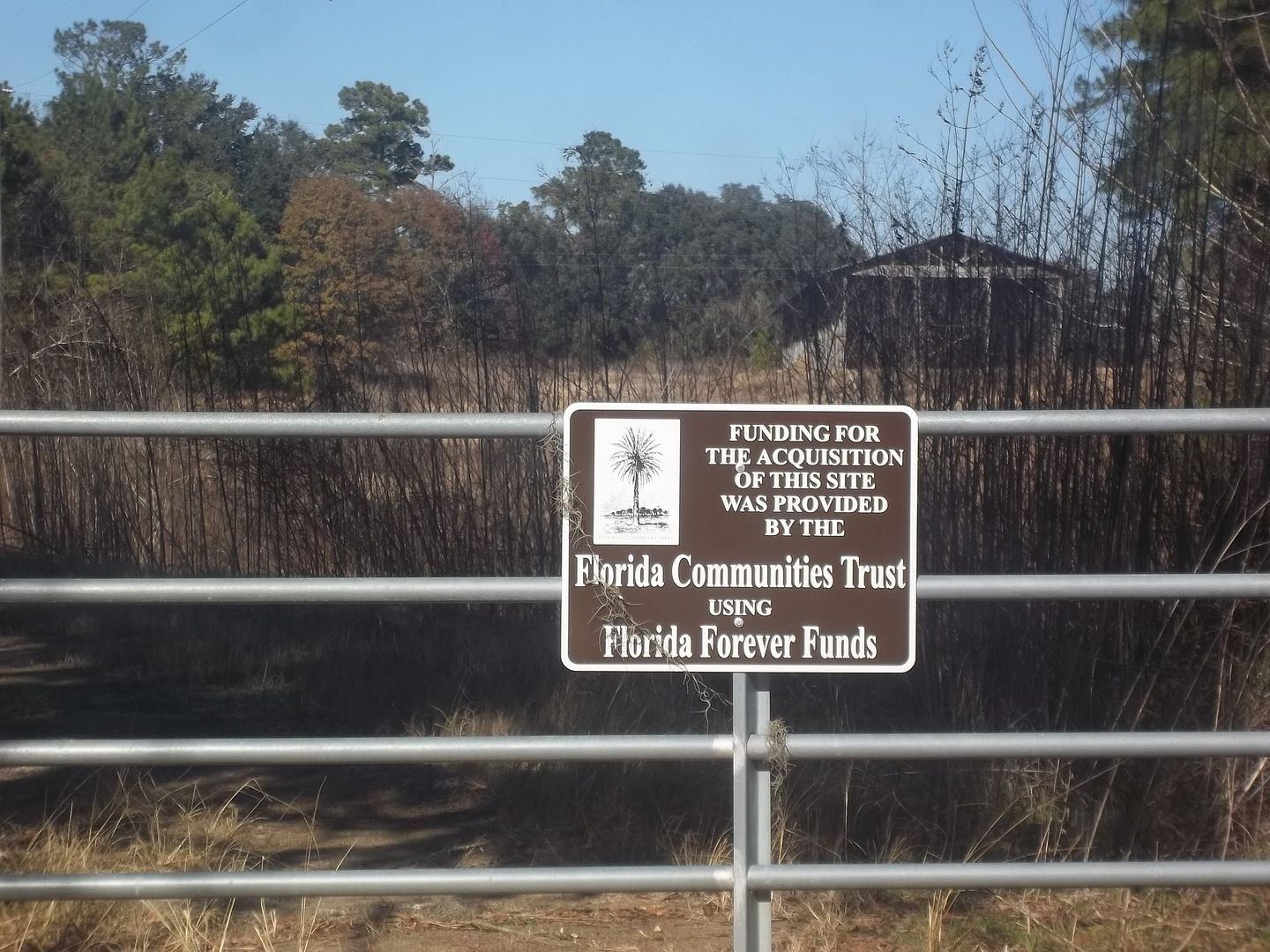
Fred George Basin in Leon County would not have been saved without critical funding provided by the state’s Florida Forever land acquisition grant program. Thank you Florida Forever!
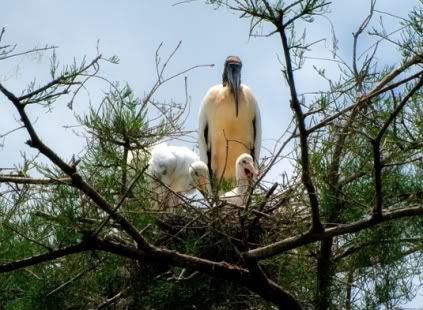
Endangered wood storks nesting in Fred George Basin. Photo courtesy Rich Leighton, Florida Nature Photography.
Ecotourism in Florida: Take Birding, Biking to the Bank
Editorial
Lakeland Ledger
Published Sunday, January 2, 2011
New census figures last month pegged Florida's population at 18.8 million residents. "With a gain of more than 2.8 million people [this past decade], it is clear that, even in these tough economic times, Florida is a thriving state rich with opportunity," said Gov.-elect Rick Scott.
Scott's 7-7-7 plan envisions seven steps to create 700,000 new jobs in Florida over the next seven years. Not surprisingly, former business CEO Scott thinks most of those steps should involve cutting taxes, shrinking government and eliminating regulations on the private-sector.
"Find me 700,000 jobs and I'll do pretty much anything," Scott said at one meeting with state lawmakers.
But as a businessman, Scott must realize that sometimes you have to invest money to make money. And that's as true in government as it is in business.
With the state's multibillion-dollar tourist industry hurting, Scott is proposing doubling Florida's tourism promotion budget to $62.5 million.
That's a good start, but it's only a beginning.
Consider the potential of nature-based tourism -- ecotourism -- in Florida. In the first half of this decade, for instance, birders and wildlife watchers spent $3.1 billion in Florida. Add the potential economic impact of hiking, camping, cycling, kayaking, fishing, hunting and other outdoor activities, and the potential payback to businesses and to entrepreneurs who cater to ecotourists is enormous.
But in a state that will likely top 20 million people in the next decade, protecting the natural assets that make Florida a nature-lover's paradise is paramount. Here are three things Scott and the Legislature should invest in to help preserve and grow nature-based tourism in the Sunshine State:
FUND FLORIDA FOREVER
Floridians have been investing in the acquisition and preservation of unspoiled beaches, wetlands, forests, uplands and prairies since the administration of Reubin Askew. In a state known for its urban sprawl and unbridled growth, the 2.4 million acres of public lands preserved form the backbone of "natural" Florida. The economic payback on that investment now and in the years to come is incalculable.
"Florida enjoys a $65 billion annual tourism industry that is inextricably linked to the utilization and enjoyment of our state's natural resources. Florida Forever and its predecessor Preservation 2000 are largely responsible for these protected natural resources that Floridians and visitors enjoy," says a 2009 study by the Nature Conservancy on the economic benefits of land conservation. "Tourism is Florida's largest single economic engine, and it can be sustainable provided that we conserve enough of what makes our state special."
SUPPORT STATE PARKS
Our state park system has been recognized as one of the best in America. State parks attract 21 million visitors a year and impact local economies to the tune of more than $1 billion annually.
The Nature Conservancy report determined that "for every 1,000 people attending a state park, the total direct impact on the local community is more than $43,400."
Consider Colk Creek State Park. Opened in 2007, it was the first new state park in Polk County in 30 years. The park is located on the 5,067-acre site of a former ranch in the Green Swamp off County Road 471, just north of U.S. 98. Its habitat ranges from cypress swamps to pine forests.
The natural site and its varied wildlife draw a steady stream of bird-watchers and other nature enthusiasts.
COMMIT TO TRAILS
Florida has more than 5,000 miles of recreational trails, and more than 4 million visitors a year use them to hike, bike and canoe. Florida's recreational trail system has been recognized as the best in the nation. The state's master plan for greenways and trails calls for connecting many of the state's most popular trails into a statewide system to link cities, towns and rural areas throughout the peninsula.
As Gov.-elect Scott searches for new jobs, he ought to realize that Florida's green assets are eminently marketable. But it will also require continued public investment to preserve, protect and expand those assets.
Turning Florida green into gold isn't alchemy but rather basic business sense.
HOW TO HELP
Support Florida Forever Coalition, of which Wildwood Preservation Society is a member. For writing your legislator and other action items click here.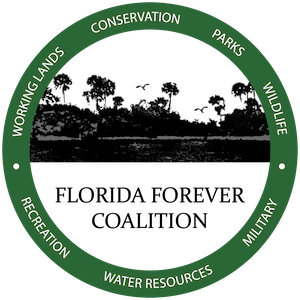

Wildwood Preservation Society is a non-profit 501(c)(4) project of the Advocacy Consortium for the Common Good. Click here to learn more.
"it's all connected"
